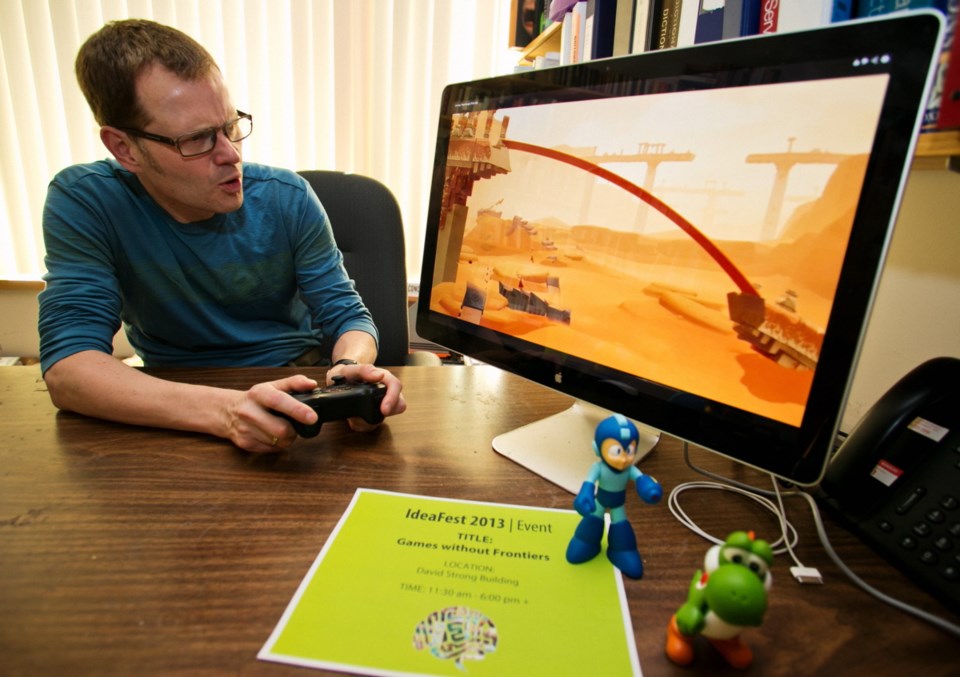The value of video games far surpasses fun for geeky guys in the basement, but the stereotype remains despite the cultural upheaval games have created, says a writing professor at the University of Victoria.
In fact, video games play an increasingly positive role in society, says David Leach, organizer of today’s Games Without Frontiers session at UVic’s Ideafest.
“Video games have become both the mythology and a form of literacy for, I’d say, the last two generations,” Leach says. “They experience the world through games; games are kind of their narrative expression.”
Part of the cultural landscape for most people under 45, video games have outstripped books and movies, and one study estimates that young gamers today will have spent 10,000 hours playing video games by the age of 21, he says.
If you’re gagging at that, or curious or skeptical, this session could be for you.
The stereotypical view of gaming is that it’s mostly a waste of time, mostly violent, that it keeps people from experiencing the real world and oh, yes, it’s addictive.
“Oh absolutely, but reading is addictive,” says Leach, who bought into the stereotype until a couple of years ago.
His “journey of discovery” into the social power of video games came via fellow UVic professor James Tanaka in November 2011.
Tanaka, one of today’s presenters, uses video games to help train kids with autism to learn facial recognition. That was a powerful experience for Leach.
Now he says that asking him what he thinks of video gaming is akin to asking his opinion of books or movies.
“With the Internet, it’s no longer the 14-year-old kid in his basement. … You can connect and collaborate and play and compete with people around the world who share your interest in a particular game. … That’s part of the social power of gaming.”
Playing Grand Theft Auto for 10 hours a day is probably not a good thing, but the fact that Leach’s son, almost seven, is “a little addicted to math games” is probably a very good thing.
Games are already good at magical explorations into surreal worlds but Gaming Without Frontiers aims to highlight how games can be used to create more social connections and foster health, educational and scientific aims. Researchers, students, indie game developers and design companies will showcase their work, while Victoria-based JTM Games will screen and talk about the most innovative, experimental and creative games of recent years.
Leach believes the variety and potential of video games and their technology need to be taken seriously, examined critically and understood in depth — which is why one panel session is called Can Games Change the World?
Another session boasts the Hul’qumi’num Treaty Board Game “to have fun and learn a little about the British Columbia treaty process” with anthropologist Brian Thom and computer scientist Yvonne Coady.
English grad students Nina Belojevic and Jon Johnson are in the process of game-ifying the James Joyce novel, Ulysses, and will be talking up their game, HyperLit.
PlayStation and Xbox are still largely a male experience, but females are skewing to half or more games played on smartphones and Facebook, Leach said.
“Because almost everybody has a smartphone, almost everybody’s got some kind of game that they play.”
GAMING FOR GOOD
What: Games Without Frontiers: The Social Power of Video Games
When: Today, 11:30 a.m.-6 p.m.
Where: David Strong Building, University of Victoria
Cost: None
On the web: uvic.ca/ideafest, gameswithoutfrontiers.uvic.ca



